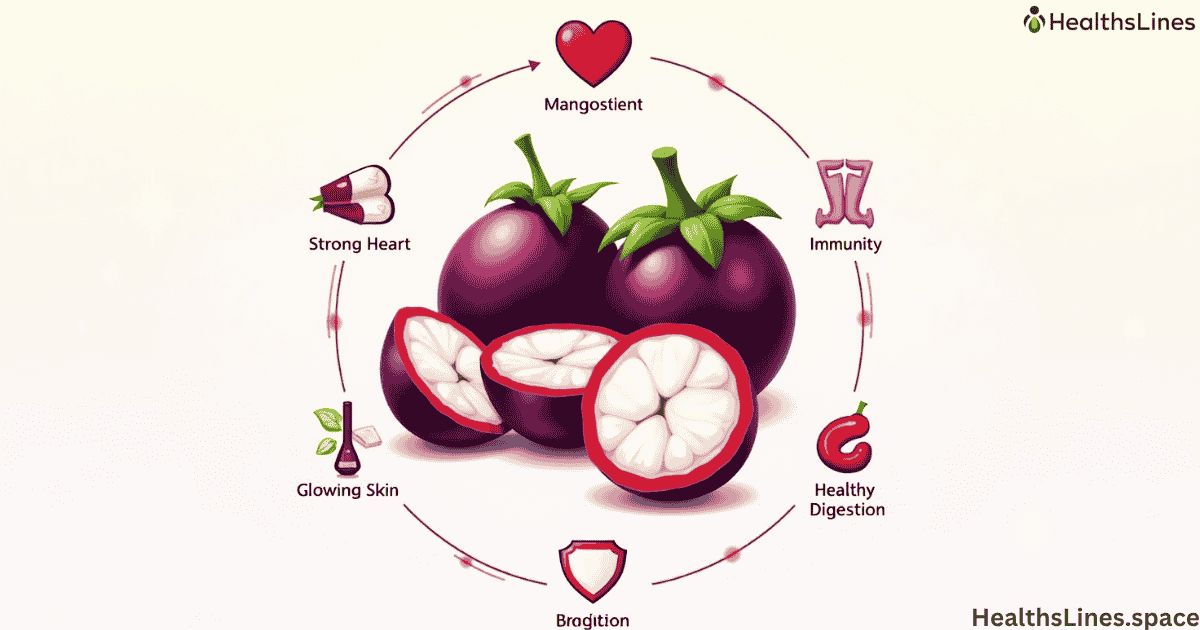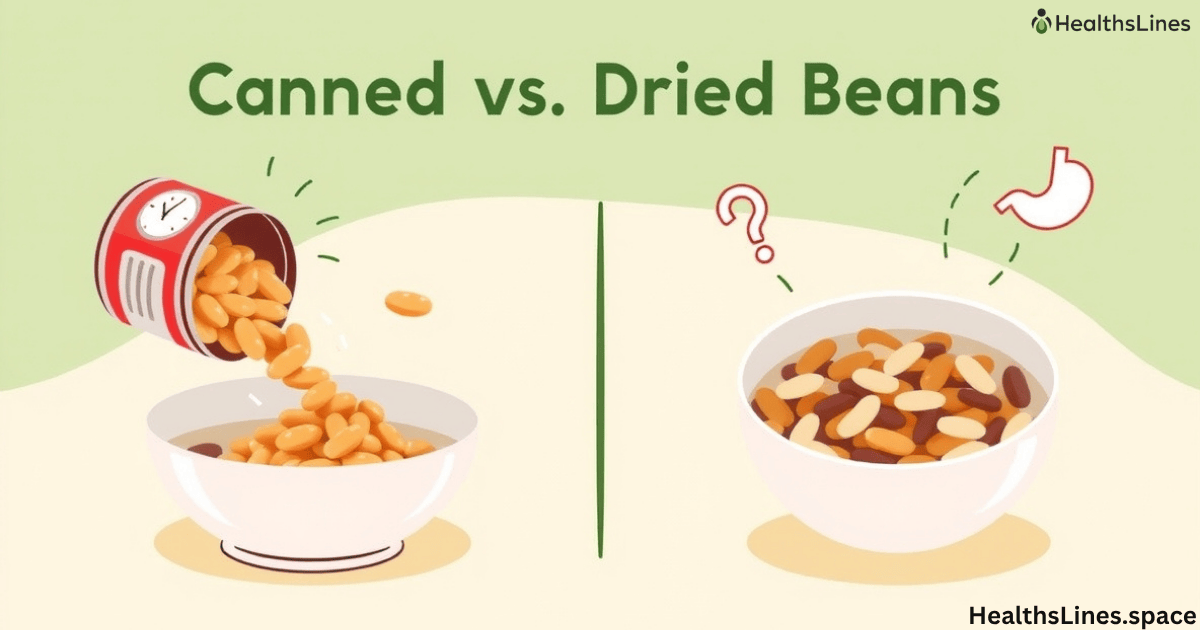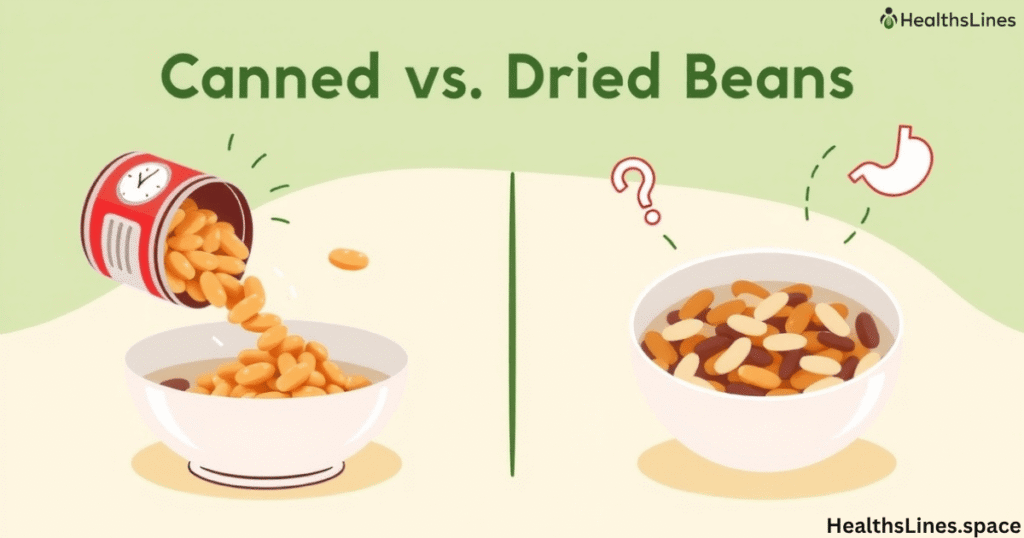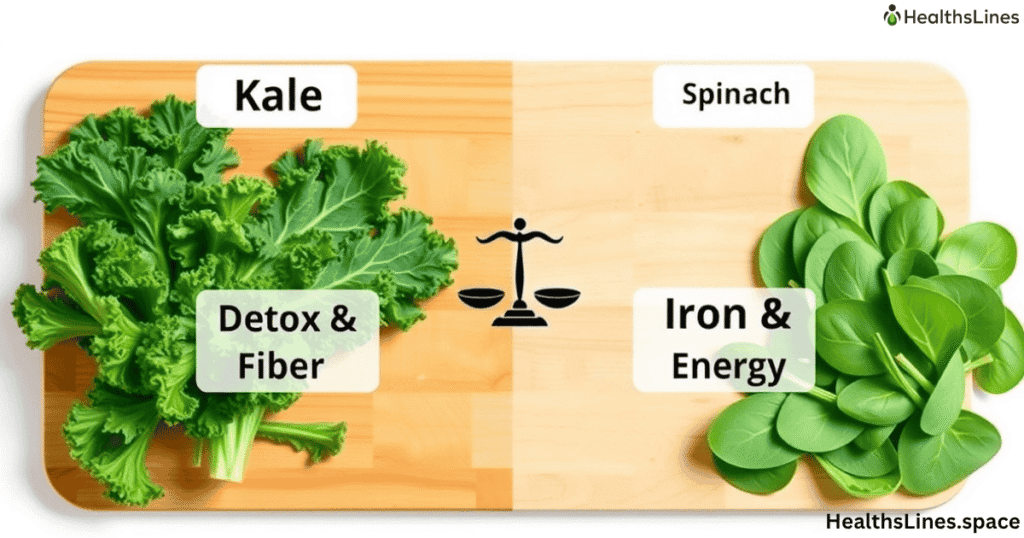Mangosteen is a tropical fruit that people call the queen of fruits. It is known for its sweet taste with a little sour twist Eating Mangosteen Daily. People in Southeast Asia have eaten it for hundreds of years. They enjoyed it not just for the taste, but because they believed it could keep them healthy. Today, science is looking at those beliefs. Many studies now show that eating mangosteen regularly can help the body in many ways.
This fruit is full of special plant chemicals called mangosteen xanthones. These act as strong mangosteen antioxidants, which means they help protect your body from damage caused by harmful molecules. Mangosteen also has vitamins, minerals, and fiber that your body needs every day. In this guide, we will look at 10 real health benefits of mangosteen, based on research and history. You will see how this fruit may help your immune system, heart, skin, and more.
Nutritional Powerhouse of Mangosteen
Mangosteen may be small, but it is packed with good things. One of the biggest benefits is mangosteen nutrition. It is low in calories but high in vitamin C, fiber, and minerals like potassium and magnesium. The fruit’s skin and white flesh also contain alpha-mangostin and gamma-mangostin. These belong to a group of rare compounds called mangosteen xanthones. They have been studied for their ability to fight inflammation, harmful bacteria, and even cancer cells in lab tests.
Here is what you get in 100 grams of fresh mangosteen:
| Nutrient | Amount | Why It Matters |
| Calories | 73 kcal | Low calorie for easy weight control |
| Vitamin C | 12% DV | Strong immune support |
| Fiber | 1.8 g | Helps digestion |
| Potassium | 48 mg | Keeps the heart working well |
| Magnesium | 13 mg | Good for muscles and nerves |
| Xanthones | Varies | Fight inflammation and cell damage |
If you eat mangosteen regularly, you give your body these nutrients in a natural and tasty way.
Supports a Healthy Immune System
One of the best-known health benefits of mangosteen is a stronger immune system. The fruit is full of mangosteen vitamin C, which helps your body make white blood cells. These cells are like your body’s army. They fight off colds, flu, and infections.
The mangosteen antioxidants in the fruit also help. They protect immune cells from damage, so they work better and last longer. Studies show that xanthones can lower swelling in the body. Less swelling means your immune system can focus on real threats like germs, not harmless things. That is why mangosteen for immune system health is more than just tradition—it has real science behind it.
Helps Regulate Blood Sugar Levels
If you want to keep your blood sugar steady, mangosteen for blood sugar control may help. Research suggests that eating mangosteen regularly may make your body respond better to insulin. This is important because insulin helps move sugar from your blood into your cells for energy.
When the body has mangosteen and insulin resistance problems, sugar stays in the blood. This can lead to type 2 diabetes. Some small human studies found that mangosteen can lower fasting blood sugar levels. The mangosteen anti-inflammatory effect may also help the body use insulin better.
May Aid in Weight Management
If you are watching your weight, mangosteen is a smart choice. It is low in calories but high in fiber, so it helps you feel full without eating too much. This can help with mangosteen and weight loss goals.
Some research shows that mangosteen for body composition may work because the fruit’s xanthones can lower swelling in fat tissue. When swelling goes down, the body may burn fat more effectively. Eating mangosteen regularly can help you eat fewer unhealthy snacks and keep your weight steady.
Promotes Healthy Skin
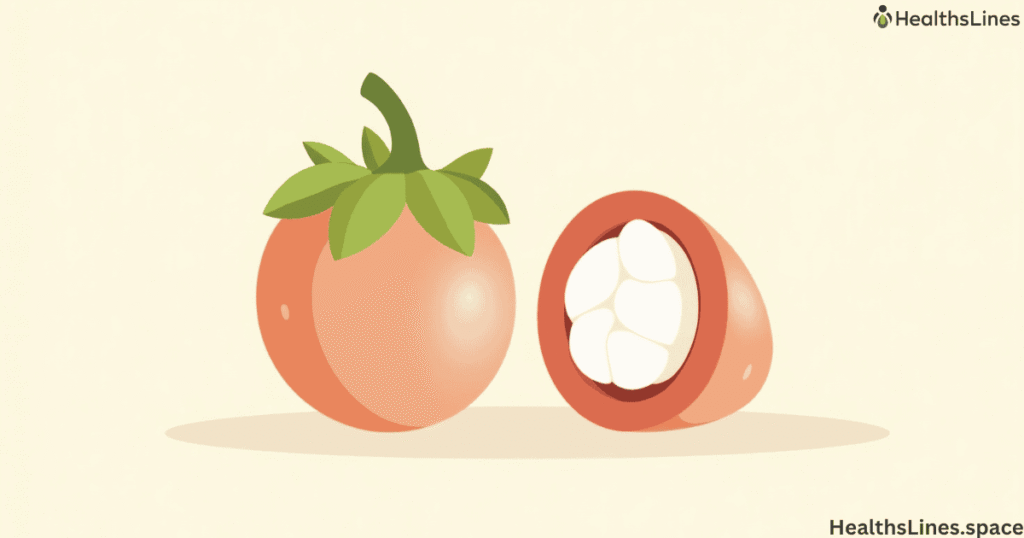
People love mangosteen for the skin. The mangosteen benefits for skin come from its high level of antioxidants. These protect skin cells from sun and pollution damage. This can slow down the signs of aging, making mangosteen anti-aging effects popular in skincare.
For people with pimples, mangosteen for acne may help. The fruit has mangosteen antibacterial properties that fight the bacteria that cause breakouts. At the same time, its anti-inflammatory action calms red, swollen spots. Eating mangosteen regularly may help keep your skin clear and glowing.
Supports Heart and Blood Vessel Health
A healthy heart loves mangosteen. The antioxidants in the fruit prevent mangosteen and LDL oxidation, which can clog arteries. When LDL cholesterol stays healthy, your blood can flow more easily, and your heart works better.
Mangosteen also has potassium, which helps control blood pressure. Fiber in the fruit supports good cholesterol levels. Together, these make mangosteen for heart health a natural choice for keeping your heart strong.
Protects Digestive Health
Mangosteen is good for your stomach and intestines. The fiber helps keep your bowel movements regular. It also supports mangosteen for gut health by feeding the good bacteria in your gut. Healthy gut bacteria improve digestion and even help your immune system.
The fruit also has mangosteen antibacterial properties and mangosteen antimicrobial properties, which can stop harmful germs from growing in your digestive system. Traditional medicine used mangosteen to ease mild diarrhea and stomach swelling. Modern research is now studying mangosteen and gut bacteria balance for better digestion.
May Support Brain Health
Mangosteen may help keep your brain healthy as you age. The mangosteen neuroprotective effect comes from its strong antioxidants, which protect brain cells from damage. This may slow down memory loss and thinking problems.
Animal studies show that alpha-mangostin might protect learning and memory in diseases like Alzheimer’s. Human studies are small, but the results are promising. Adding mangosteen to your diet is an easy way to get more brain-protecting nutrients.
Potential Anti-Cancer Properties
Some lab research has found many anti-cancer properties. The compounds alpha-mangostin and gamma-mangostin may slow cancer cell growth and even cause them to die naturally.
While this is exciting, it is important to remember that most studies have been done in labs, not on people. Mangosteen should never replace medical treatment. In fact, because of mangosteen and medications interactions, anyone going through mangosteen and chemotherapy should talk to a doctor before eating large amounts of the fruit.
May Help Reduce Exercise-Related Fatigue
If you play sports or exercise often, mangosteen may help your muscles recover faster. The antioxidants can lower swelling in muscle tissue and reduce lactic acid buildup. This helps cut down soreness and improve energy after workouts.
One small study found that drinking mangosteen juice after heavy exercise helped people feel less tired the next day. This suggests mangosteen anti-inflammatory effects may also help active people recover more quickly.
Precautions and Possible Side Effects
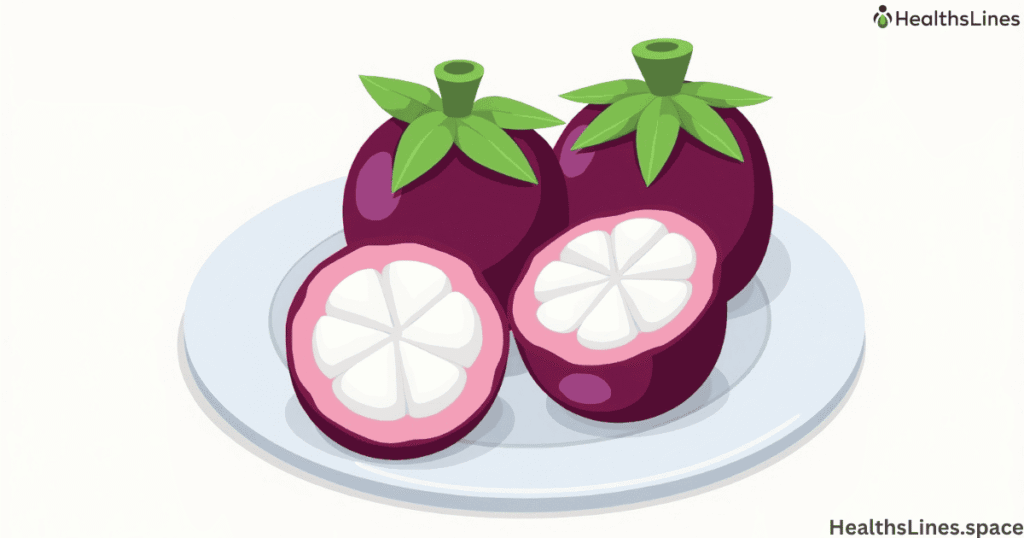
While mangosteen fruit is safe for most people, there are some mangosteen precautions to keep in mind. High amounts of mangosteen supplements may slow blood clotting. This is risky for people on blood thinners. There have also been rare reports of mangosteen lactic acidosis risk with extreme supplement use.
Mangosteen can also interact with medicines, including mangosteen and medications for cancer, heart disease, or infections. If you have a medical condition or take medication, talk to your doctor before making it part of your daily diet.
How to Add Mangosteen to Your Diet
Fresh mangosteen is the best choice. You can eat it as a snack, mix it into fruit salads, or blend it into smoothies. In countries where it is hard to find fresh, you can buy frozen pulp, dried mangosteen, or juice. Always choose products without added sugar for the best mangosteen nutrition.
In Southeast Asia, people enjoy the fresh fruit after peeling away the thick purple skin. Its juicy white sections are sweet and refreshing, making it a healthy treat any time of day.
Conclusion
The health benefits of mangosteen are many. From stronger immunity and better skin to healthier digestion and heart function, this fruit offers powerful support for your body. It may even protect your brain and help your muscles recover after exercise.
While it is not a cure for any illness, eating mangosteen regularly is a tasty and safe way to boost your health. Just remember to eat it in moderation and check with your doctor if you take medicines or have health problems. The queen of fruits mangosteen is more than just delicious—it is a true gift from nature.
